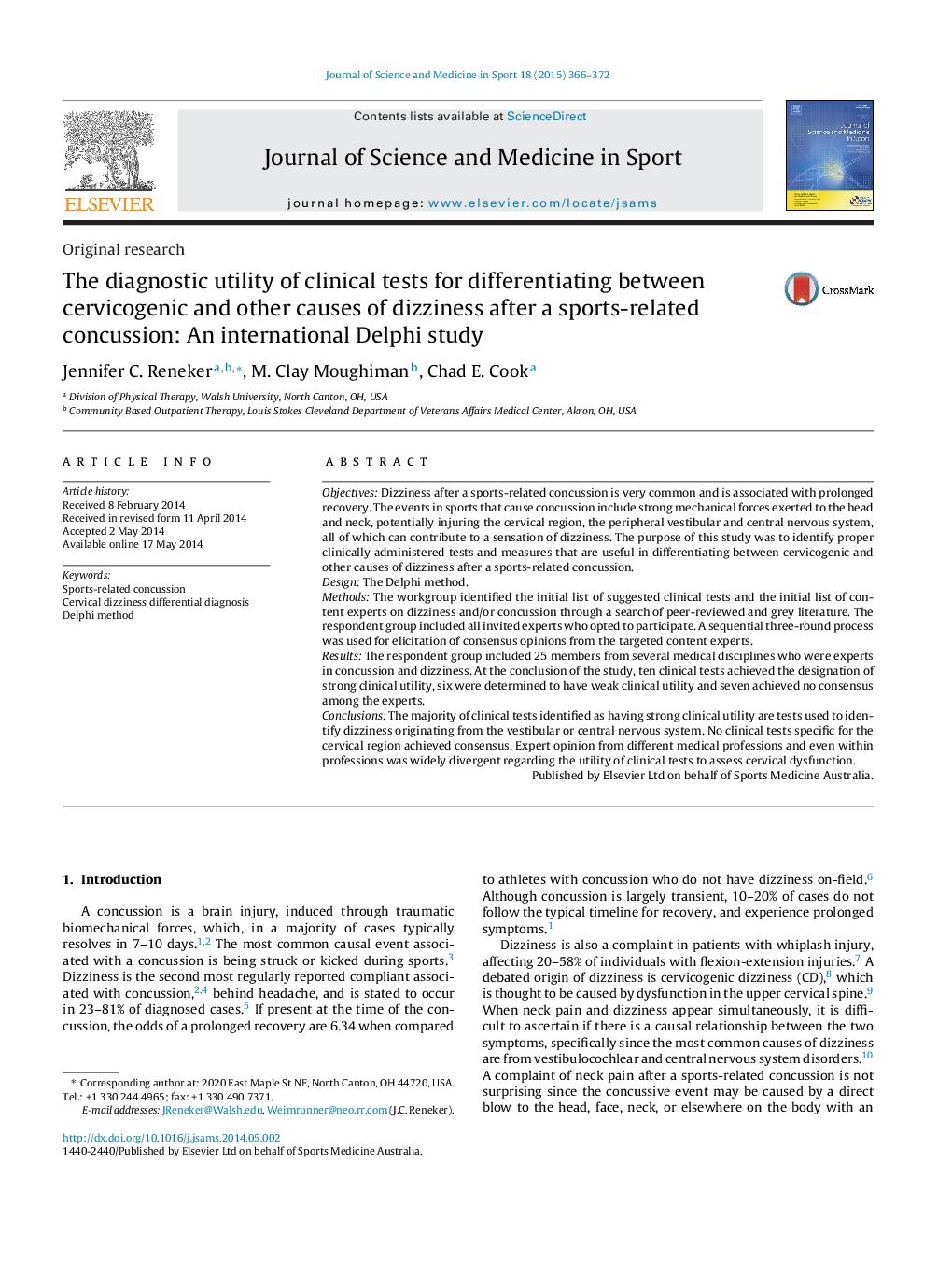| Article ID | Journal | Published Year | Pages | File Type |
|---|---|---|---|---|
| 2704229 | Journal of Science and Medicine in Sport | 2015 | 7 Pages |
ObjectivesDizziness after a sports-related concussion is very common and is associated with prolonged recovery. The events in sports that cause concussion include strong mechanical forces exerted to the head and neck, potentially injuring the cervical region, the peripheral vestibular and central nervous system, all of which can contribute to a sensation of dizziness. The purpose of this study was to identify proper clinically administered tests and measures that are useful in differentiating between cervicogenic and other causes of dizziness after a sports-related concussion.DesignThe Delphi method.MethodsThe workgroup identified the initial list of suggested clinical tests and the initial list of content experts on dizziness and/or concussion through a search of peer-reviewed and grey literature. The respondent group included all invited experts who opted to participate. A sequential three-round process was used for elicitation of consensus opinions from the targeted content experts.ResultsThe respondent group included 25 members from several medical disciplines who were experts in concussion and dizziness. At the conclusion of the study, ten clinical tests achieved the designation of strong clinical utility, six were determined to have weak clinical utility and seven achieved no consensus among the experts.ConclusionsThe majority of clinical tests identified as having strong clinical utility are tests used to identify dizziness originating from the vestibular or central nervous system. No clinical tests specific for the cervical region achieved consensus. Expert opinion from different medical professions and even within professions was widely divergent regarding the utility of clinical tests to assess cervical dysfunction.
